
Photo by Liz Falconer / Unsplash License

Photo by Liz Falconer / Unsplash License
This section of the website contains essays, book reviews, and links to material that discusses the ‘science’ of racism as it relates specifically to structures of American society.
The pages encourage discussion that is helpful in understanding how structures like the laws, regulations, court decisions, and the Constitution support and preserve American racism.
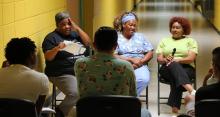
Ending Racism USA's role in helping Holly Springs, Mississippi, discover a successful program in Elaine, Arkansas is an example of one way that Ending Racism USA is facilitating local groups learning from each other. In this case, the University of Florida Samuel Proctor Oral History Project is helping both communities.
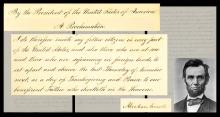
No President before 1961 mentioned the Pilgrims in their Thanksgiving proclamation. Then President Kennedy from Massachusetts asked "the head of each family to recount to his children the story of the first New England thanksgiving." He made no mention of Native Americans.
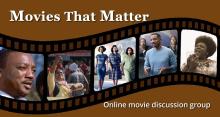
Join Edward McNulty, editor and film reviewer at Visual Parables, and Ken Bedell, founder of Ending Racism USA, for a lively and thoughtful discussion of movies that matter.
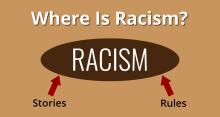
To end racism, we need to increase our ability to identify racism and develop strategies to eradicate it.

On August 28, 2022, Race and Grace Ministries, LLC and Ending Racism USA co-sponsored a virtual commemoration of the 1963 March on Washington for Jobs and Freedom. More than 100 people joined to be inspired by what happened 49 years ago, to reflect on what has been accomplished, and to recommit to the goal of ending racism. The Zoom meeting was recorded. You can watch the entire event or clips of the presenters.
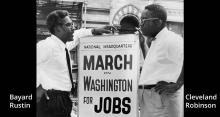
In 2013, President Barack Obama posthumously awarded Bayard Rustin the Presidential Medal of Freedom, the highest civilian award in the United States. The Presidential statement to the press read:
“Bayard Rustin was an unyielding activist for civil rights, dignity, and equality for all... and fought tirelessly for marginalized communities at home and abroad. An openly gay African American, Mr. Rustin stood at the intersection of several of the fights for equal rights.”
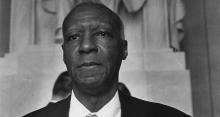
Veteran civil rights and labor leader A. Randolph was the organizer of the 1963 March on Washington for Jobs and Freedom. The fact that the March gathered a quarter of a million people was a tribute to his skill as an organizer. His final challenge to those gathered was, “When we leave, it will be to carry on the civil rights revolution home with us into every nook and cranny of the land.” That challenge is as relevant today as it was in 1963.